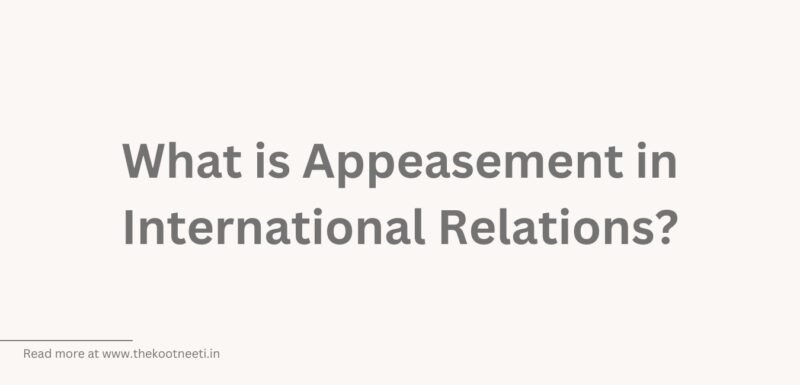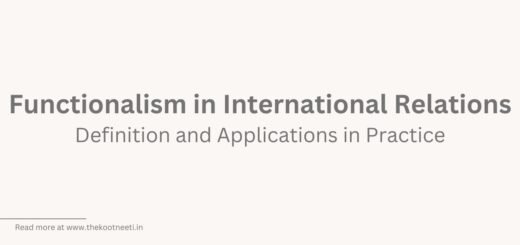What is Appeasement in International Relations?

Appeasement is a foreign policy strategy in which a country seeks to avoid conflict by making concessions or making agreements with a perceived aggressor. It is often used as a means of avoiding war or maintaining peace.
Appeasement became a controversial issue in the 1930s, when several European countries, including Britain and France, pursued a policy of appeasement towards Nazi Germany. These countries made a series of concessions to Hitler in an attempt to avoid war, including allowing Germany to annex parts of Czechoslovakia and Poland. However, these concessions ultimately failed to prevent the outbreak of World War II, and the policy of appeasement was widely criticized as being too weak and ineffective in standing up to aggression.
In international relations, appeasement is often seen as a risky strategy, as it can be perceived as a sign of weakness and may encourage further aggression. Critics argue that appeasement can embolden the aggressor and create a spiral of escalation, as each concession leads to further demands. At the same time, however, appeasement can also be seen as a way to avoid unnecessary conflict and to deescalate tensions between countries.
Today, appeasement is often used as a tool in diplomacy and conflict resolution, particularly in situations where military intervention is not a viable option. It can be an effective way to reduce tensions and prevent conflicts from escalating, but it is important for countries to carefully consider the potential risks and benefits of this strategy.



















